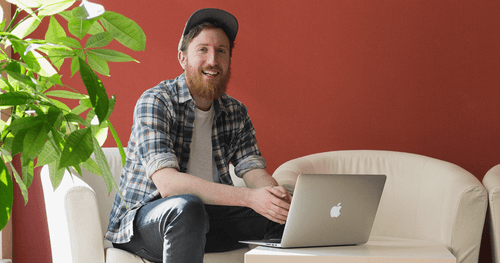10 Tips To Learn Any Language From An Expert
Curated from: babbel.com
Ideas, facts & insights covering these topics:
10 ideas
·13.8K reads
48
Explore the World's Best Ideas
Join today and uncover 100+ curated journeys from 50+ topics. Unlock access to our mobile app with extensive features.
Learn a foreign language: Know your motivation
If you don’t have a good reason to learn a language, you are less likely to stay motivated over the long-run.
Once you’ve decided on a language, it’s crucial to commit.
424
2.09K reads
Find a partner
Finding some kind of partner on your language adventure will push both of you to always try just a little bit harder and stay with it.
It’s a really great way of actually going about it. You have someone with whom you can speak, and that’s the idea behind learning a new language.
334
1.34K reads
Talk to yourself
When you have no one else to speak to, there’s nothing wrong with talking to yourself in a foreign language.
This can keep new words and phrases fresh in your mind. It also helps build up your confidence for the next time you speak with someone.
410
1.49K reads
Keep it relevant
Talking to people is one of the best ways to learn a language because it keeps the learning process relevant to you.
"The creative side is really being able to put the language that you're learning into a more useful, general, everyday setting"
345
1.27K reads
Learn a foreign language: Have fun with it
Think of some fun ways to practice your new language: make a radio play with a friend, draw a comic strip, write a poem or simply talk to whomever you can.
348
1.42K reads
Act like a child
The key to learning as quickly as a child may be to simply take on certain childlike attitudes. For instance, lack of self-consciousness, a desire to play in the language and willingness to make mistakes.
We learn by making mistakes. When it comes to learning a language, admitting that you don’t know everything (and being okay with that) is the key to growth and freedom.
412
1.29K reads
Leave your comfort zone
Willingness to make mistakes means being ready to put yourself in potentially embarrassing situations. It’s the only way to develop and improve.
Talk to strangers in the language, ask for directions, order food, try to tell a joke. The more often you do this, the bigger your comfort zone becomes and the more at ease you can be in new situations.
377
1.25K reads
Listen
You must learn to listen before you can speak.
Every language sounds strange the first time you hear it. The more you expose yourself to it the more familiar it becomes, and the easier it is to speak it properly.
The best way to go about mastering that is actually to hear it constantly, to listen to it and to kind of visualize or imagine how that is supposed to be pronounced, because for every sound there is a specific part of the mouth or throat that we use in order to achieve that sound.
379
1.09K reads
Watch others talk
Different languages make different demands on your tongue, lips and throat. Pronunciation is just as much physical as it is mental.
If you can’t watch and imitate a native-speaker in person, watching foreign-language films and TV is a good substitute.
353
1.19K reads
Learn a new language: Dive in
Use the 360° maximalist approach: no matter which learning tools you use, it’s crucial to practice your new language every single day.
Really, really go for it and try to use it throughout the day. Try to think in it, try to write in it, try to speak to myself even in that language.
370
1.34K reads
IDEAS CURATED BY
CURATOR'S NOTE
Some great tips for anyone struggling to learn a foreign language.
“
Stephanie Denis's ideas are part of this journey:
Learn more about personaldevelopment with this collection
How to practice effectively
The importance of consistency
How to immerse yourself in the language
Related collections
Similar ideas
6 ideas
8 ideas
The Hard, But Effective Way to Learn a New Language
scotthyoung.com
10 ideas
Learning a language - 10 things you need to know
theguardian.com
Read & Learn
20x Faster
without
deepstash
with
deepstash
with
deepstash
Personalized microlearning
—
100+ Learning Journeys
—
Access to 200,000+ ideas
—
Access to the mobile app
—
Unlimited idea saving
—
—
Unlimited history
—
—
Unlimited listening to ideas
—
—
Downloading & offline access
—
—
Supercharge your mind with one idea per day
Enter your email and spend 1 minute every day to learn something new.
I agree to receive email updates

